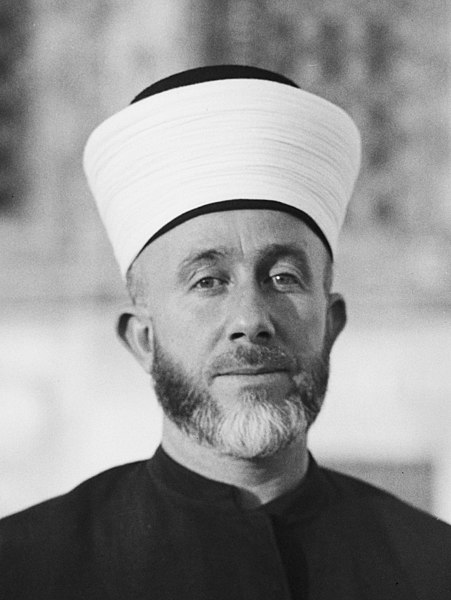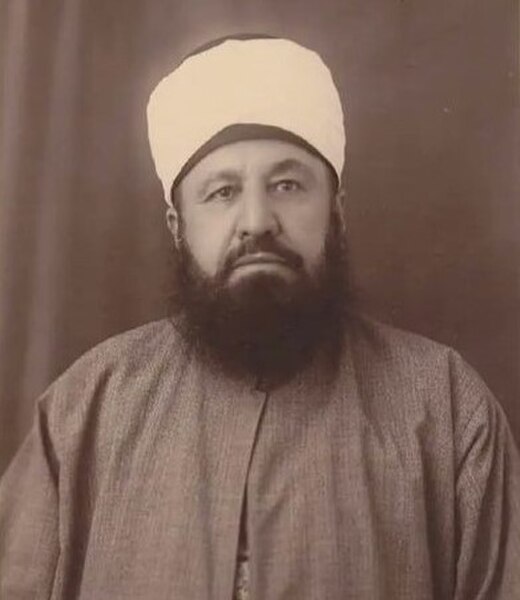The Arab Higher Committee or the Higher National Committee was the central political organ of Palestinian Arabs in Mandatory Palestine. It was established on 25 April 1936, on the initiative of Haj Amin al-Husayni, the Grand Mufti of Jerusalem, and comprised the leaders of Palestinian Arab clans and political parties under the mufti's chairmanship. The committee was outlawed by the British Mandatory administration in September 1937 after the assassination of a British official.
Members of the Arab Higher Committee, 1936. Front row from left to right: Raghib al-Nashashibi, Amin al-Husayni, Ahmed Hilmi Pasha, Gen. Manager of the Jerusalem Arab Bank, Abdul Latif Bey Es-Salah, chairman of the Arab National Party, Alfred Roke
Amin al-Husayni, president of the Arab Higher Committee meets with Führer of the Third Reich, Adolf Hitler.
Mohammed Amin al-Husseini was a Palestinian Arab nationalist and Muslim leader in Mandatory Palestine. Al-Husseini was the scion of the al-Husayni family of Jerusalemite Arab nobles, who trace their origins to the Islamic Prophet Muhammad.
Amin al-Husseini in 1929
Al-Husseini's mentor, Muhammad Rashid Rida, a Syrian Sunni cleric noteworthy for his vehement opposition to Zionist movement and Western ideals
Arab protest delegations against British policy in Palestine during 1929
Al-Husseini (center) in a visit to Saudi Arabia in the early 1930s. To his left is Hashim al-Atassi, who later became president of Syria and to al-Husseini's right is Shakib Arslan, an Arab nationalist philosopher from Lebanon.






